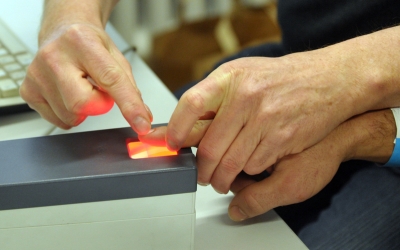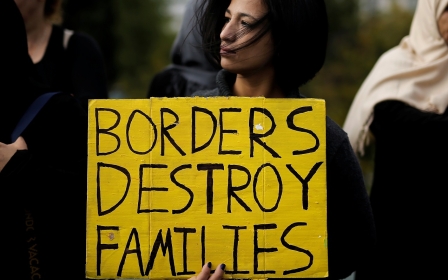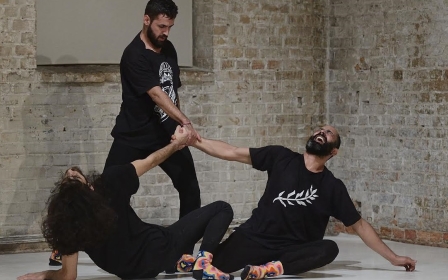Germany: Syrian refugee ends parliament bid over racist threats
The first Syrian refugee to run for a seat in the German parliament has withdrawn his candidacy due to racism and threats, the environmentalist Green Party said on Tuesday.
Tareq Alaows ended his bid to enter the lower house of parliament, or Bundestag, for the Greens in the city of Oberhausen, in North Rhine-Westphalia, for "personal reasons", the party said in a statement.
'My candidacy has shown that we need strong structures in all parties, politics and society to confront structural racism and help those affected'
- Tareq Alaows
"The high threat level for me, and especially for people close to me, is the most important reason for withdrawing my candidacy," Alaows said. "My candidacy has shown that we need strong structures in all parties, politics and society to confront structural racism and help those affected."
A refugee who fled military conscription in Syria, Alaows announced last month that he was planning to run for the Greens in a former coal-mining region of western Germany in the 26 September national election - as long as his application for German citizenship was approved by then.
The Greens said Alaows could have been the first refugee elected to the federal parliament. But, for now, he will be spending some time out of the public eye due to the "tense security situation”.
"We would have liked to be able to continue to fight for a humane asylum and migration policy with Mr Alaows as our candidate for the Bundestag. Unfortunately, this is no longer possible," the party said, without giving details.
The immigration debate
Alaows fled Syria's civil war after studying law in Aleppo and Damascus. The 31-year-old drifted across the Aegean Sea in a rubber dinghy before walking most of the way from Greece to Austria, and finally arriving in the western German city of Bochum in 2015, the Tagesspiegel newspaper reported at the time.
He learned German in six months and quickly landed a job as a social worker, also taking part in various initiatives to help refugees, the newspaper said.
Alaows is one of hundreds of thousands of migrants who entered Germany after Chancellor Angela Merkel opened the borders in 2015 to refugees fleeing war and poverty in the Middle East and beyond.
But that influx has been met by an upsurge in support for the far right, with the anti-immigration party Alternative for Germany (AfD) propelled into the Bundestag in 2017.
Alaows attracted a wave of online attacks from the far right, particularly after suggesting that the words "Dem Deutschen Volke" (To the German people) on the parliament building be replaced with "For all people who live in Germany”.
Politicians and aid groups reacted to Alaows’ withdrawal on social media on Tuesday.
"The fact that it is not possible for Tareq Alaows to run for the Bundestag without risking his and his family's safety is highly shameful for our democratic society," Katrin Goering-Eckardt, the Greens' parliamentary leader, wrote on Twitter.
Foreign Minister Heiko Maas also tweeted his reaction to the news, describing it as "a disgrace for our democracy" that Alaows' political ambitions had been thwarted by "threats and racism”.
Sea-Watch, a non-profit organisation that conducts civil search and rescue operations in the central Mediterranean, condemned the "right-wing agitation and racist hostility" that led to Alaows' decision.
Seebrucke, a civilian movement that demands safe escape routes and decriminalisation of sea rescue and escape, also tweeted its support for Alaows.
Opinion polls put the left-leaning Greens second behind Merkel's conservative bloc.
Middle East Eye propose une couverture et une analyse indépendantes et incomparables du Moyen-Orient, de l’Afrique du Nord et d’autres régions du monde. Pour en savoir plus sur la reprise de ce contenu et les frais qui s’appliquent, veuillez remplir ce formulaire [en anglais]. Pour en savoir plus sur MEE, cliquez ici [en anglais].





